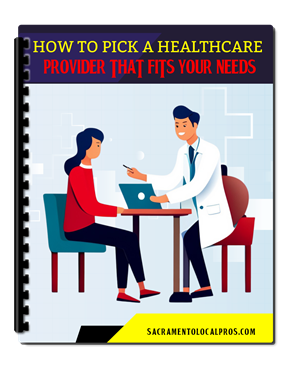Gynecomastia is a condition that results in the development of abnormally large breasts in men.
It can be caused by several factors, including obesity, hormonal imbalance, and the use of certain medications.
Though it is not a life-threatening condition, gynecomastia can cause significant emotional distress and social embarrassment for those affected by it.
Here are twenty questions people often ask about gynecomastia...
1)) What Is Gynecomastia?
Gynecomastia is a condition that causes boys and men to develop breasts.
It is caused by an imbalance of the hormones estrogen and testosterone.
The condition can cause pain and embarrassment, but in most cases, it can be treated successfully.
2)) What Are the Causes of Gynecomastia?
Gynecomastia is a benign enlargement of the male breast.
There are many potential causes of gynecomastia, including obesity, steroid use, medication side effects, and hormone imbalances.
Many cases of gynecomastia are idiopathic, meaning the cause is unknown.
However, understanding the potential causes of gynecomastia can help physicians better diagnose and treat the condition.
3)) Is Gynecomastia A Sign of Cancer?
No, gynecomastia is not a sign of cancer.
Gynecomastia is a condition that results in the development of enlarged breasts in men.
This condition can be caused by several factors, including hormonal imbalances, medications, and tumors.
However, gynecomastia is not typically associated with cancer.
If you are concerned that you may have cancer, please consult with a medical professional.
4)) How Do You Get Rid of Man Boobs?
There is no definitive answer to this question.
Some people may need surgery, while others may be able to get rid of their man boobs through diet and exercise.
If you are concerned about your man's boobs, talk to your doctor to find out the best course of action for you.
5)) Does Gynecomastia Go Away on Its Own?
Gynecomastia, or male breast enlargement, is a common condition that can cause embarrassment and self-consciousness in men.
While the cause of gynecomastia is not always clear, it often goes away on its own.
In some cases, however, surgery may be necessary to remove excess breast tissue.
6)) What Is the Treatment for Gynecomastia?
The most common treatment for gynecomastia is surgery.
Other treatments include hormone therapy and radiation therapy.
Surgery is the most effective way to treat gynecomastia.
The surgeon will make an incision in the chest and remove the excess tissue.
Hormone therapy may be used if the cause of gynecomastia is a hormonal imbalance.
Radiation therapy may be used if the cause of gynecomastia is cancer.
7)) Are There Any Home Remedies for Gynecomastia?
There are a few home remedies that may help to treat gynecomastia.
These remedies include:
- Massaging the breasts regularly with warm olive oil or mustard oil mixture.
- Apply a paste of raw egg white and honey on the breasts and leave it on for about 15 minutes.
- Consuming cabbage juice regularly.
- Take 1 tablespoon of fenugreek (methi) seeds soaked in water overnight and drink the water the following day.
- Consuming 2 tablespoons of aloe vera juice daily.
If you are struggling with gynecomastia, it is important to consult a doctor to rule out any underlying medical causes.
Treatment options vary depending on the underlying cause but may include medication or surgery.
Surgery is generally considered a last resort option and is not typically covered by insurance.
If you are considering surgery, be sure to discuss all the risks and benefits with your doctor beforehand.
8)) When Should I See a Doctor for Gynecomastia?
If you're concerned about the appearance of your chest, or if you're experiencing pain, nipple discharge, or sensitivity, then you should seek medical attention.
Gynecomastia is a condition that affects men at some point in their lives, and it's typically not a sign of a serious health problem.
However, it's important to get it checked out by a doctor to rule out any potential causes.
9)) What Are the Complications of Gynecomastia?
The complications of gynecomastia can be both physical and psychological.
Physical complications can include pain, infection, and problems with breathing and swallowing.
Psychological complications can include body image issues and depression.
In severe cases, men with gynecomastia may develop an obsession with their appearance and may even attempt suicide.
If you are experiencing any of these complications, it is important to seek professional help.
10)) Is There a Cure for Gynecomastia?
There is not one specific cure for gynecomastia.
However, there are several treatments available that can help reduce the appearance of enlarged breasts in men.
These treatments include surgery, medication, and lifestyle changes.
Surgery is often the most effective treatment option, but it is also the most invasive and expensive.
Medication can be helpful for some men, but it is not always effective.
Lifestyle changes, such as losing weight and exercising regularly, can also help reduce the appearance of gynecomastia.
However, these changes will not always eliminate the condition.
If you are concerned about your appearance and want to explore treatment options, talk to your doctor.
They can help you find the best option for you based on your individual needs and preferences.
11)) What Is the Prognosis for Gynecomastia?
The prognosis for gynecomastia is good.
Most cases of gynecomastia are benign (not cancerous) and resolve on their own within a year or two.
In rare cases, gynecomastia can be a sign of a more serious condition, such as testicular cancer.
If you have persistent breast enlargement that doesn't go away on its own, see your doctor for evaluation.
12)) What Are the Risks of Surgery for Gynecomastia?
There are both risks and benefits to surgery for gynecomastia.
Some of the risks include infection, bleeding, and scars.
However, the benefits can include a flatter chest, increased confidence, and improved self-esteem.
It is important to discuss your options with a qualified surgeon to see if surgery is the right choice for you.
13)) What Are the Long-Term Effects of Gynecomastia?
The long-term effects of gynecomastia can include psychological effects such as low self-esteem and depression, and physical effects such as breast pain and tenderness.
In some rare cases, gynecomastia may also lead to breast cancer, but this hasn’t been proven by science.
If you are concerned about the long-term effects of gynecomastia, it is important to speak to your doctor.
14)) How Can I Prevent Gynecomastia?
There is no definitive answer to this question, as there are many potential causes of gynecomastia.
However, some things that may help include losing weight if you are overweight or obese, reducing your alcohol intake, and avoiding certain medications such as steroids.
15)) What Exercises Reduce Man Breasts?
No one exercise specifically targets man breasts.
However, any chest-strengthening exercises can help to reduce the appearance of man breasts.
These include weightlifting, pushups, bench presses, and other similar exercises.
In addition to exercise, losing weight, in general, may also help to reduce the appearance of man breasts.
By reducing overall body fat, you may reduce the amount of fat in your chest area.
So, if you are carrying around extra weight, focus on losing that first and foremost.
Dieting and exercise together are the best way to achieve this.
16)) Is Gynecomastia Hereditary?
Hereditary gynecomastia is rare, accounting for only about 10% of all cases.
However, if you have a close relative with the condition, your chances of developing gynecomastia may be increased.
17)) Can Gynecomastia Come Back After Treatment?
There is a small chance that gynecomastia can come back after treatment.
In most cases, however, the condition is permanently resolved.
If it does come back, additional treatment may be necessary.
18)) How Do I Know If I Have Gynecomastia?
There are several ways to tell if you have gynecomastia, including developing breast tissue or nipples, seeing an excess of fatty tissue around the chest area, or having enlarged lymph nodes in the armpits.
19)) When Can I Start Working Out After Gynecomastia Surgery?
Most patients can resume light exercise within two weeks after surgery.
However, strenuous activities should be avoided for four to six weeks.
Patients should also avoid any activity that puts pressure on the chest, such as weightlifting, for four to six weeks.
If you have any questions or concerns about when to resume physical activity after your surgery, be sure to talk to your doctor.
They can give you specific instructions based on your case.
20)) How Do I Find a Gynecomastia Surgeon?
There are a few ways to find a gynecomastia surgeon.
You can ask your primary care doctor for a referral, search for local plastic surgeons or do an online search for "gynecomastia surgeon + [city name]".
When you contact a potential surgeon, be sure to ask about his or her experience with the surgery and whether he or she has had any negative outcomes.
You should also get quotes from multiple surgeons before deciding.
Conclusion
Gynecomastia is a condition that results in enlarged male breasts.
Though the cause of gynecomastia is not always clear, it may be associated with hormone changes, obesity, and medications.
Treatment for gynecomastia depends on the underlying cause.
If you are experiencing symptoms of gynecomastia, it is important to see a doctor for evaluation and treatment.
Here we have answered some of the most common questions people ask about gynecomastia.
If you still have questions after reading this article, please talk to your doctor.
Download Our Free E-book!








